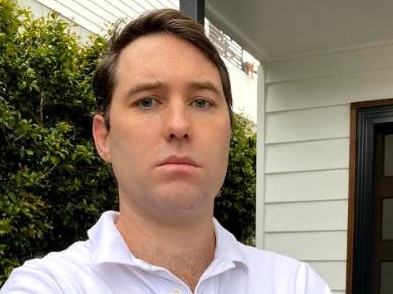Queensland Health pushes for new laws to stop journalists reporting on failings, charge whistleblowers
New laws put forward by Queensland Health would stop reporters exposing the huge failings in the state’s medical system – and even could see whistleblowers face criminal charges.
QLD Politics
Don't miss out on the headlines from QLD Politics. Followed categories will be added to My News.
Queensland Health has made an audacious bid for new laws that would stop journalists writing about failings in the hospital and health system.
Director-General Shaun Drummond has also advocated criminal penalties against whistleblowers who tell journalists about medical mistakes.
The proposed laws would muzzle reporters and would have stopped a whistleblower exposing DNA testing bungles in the state government forensics science lab that resulted in rapists and murderers going free.
Such a law would also have stopped Dr Dinesh Palipana from exposing the crisis at Princess Alexandra Hospital spinal unit and blocked The Courier-Mail journalists who exposed the shameful death of Mason Jet Lee and Dr Jayant Patel’s botched surgeries.
And it would likely have hindered reporting the Gladstone maternity hospital bypass scandal and other hospital and health service failings.

QH’s censorship recommendations are contained in a formal submission by Mr Drummond to the inquiry into Public Interest Disclosure laws.
When asked to comment on disclosures to the media and other parties, Mr Drummond said: “While section 20 provides for when an officer may make a disclosure to a journalist, it does not consider penalties for inappropriate disclosure of relevant information to journalists.
“Consideration could be given to expanding this provision to include penalties for inappropriately disclosing relevant information to journalists where a department is dealing with the matter.”
Mr Drummond did not identify any cases of inappropriate disclosures.
When quizzed on Saturday on Mr Drummond’s hard line stance, Health Minister Shannon Fentiman rejected the bureaucrat’s position.
“The minister does not support penalties for the disclosure of information to journalists,” her spokesman said.

The spokesman said departmental submissions “are independent from the minister” and pointed out that Ms Fentiman last year backed shield laws to protect journalists and their sources.
The PID inquiry by retired judge Alan Wilson KC received 60 submissions, many critical of the laws which whistleblowers say are used to hide government wrongdoing.
Queensland’s commissioner for Fire and Emergency Services Greg Leach also sought to restrict journalists.
He said current PID laws were “appropriate and effective”, and disclosures to third parties “such as the media” could hamper investigations.
The senior public servants advocating a media clampdown are at odds with the Coaldrake Report which was critical of government secrecy.
Mr Wilson also published a submission from Dr Shaun McCrystal, who has complained of the approval of a fire trap building built too close to his home.
“I have made Public Interest Disclosures about a substantial and specific danger to public health and safety, and serious and systemic corruption in the Queensland state government, to both the Crime and Corruption Commission and the Premier,” Dr McCrystal told Mr Wilson.

After nearly three years “I have absolutely no idea what is going on”, he said. “In the 764 days since I made the first PID, to the 22 days since I made the fourth PID to Ms Palaszczuk, I have never received reasonable information regarding the status of any PID, nor any outcome advice.”
Dr McCrystal said despite offering independent expert advice to back up his claims, his grievances remained unresolved and a fire threat remained.
The Queensland Whistleblowers Action Group said the act should be widened to protect journalists reporting on matters disclosed by whistleblowers.
President Greg McMahon was critical of PID laws: “The legislation may even constitute tokenism in important respects – it does not provide the protections needed to by the whistleblower in the immediate, short and medium-term after disclosures are made, and offers no protections from the parliament.
“The act may appear to be a product of the post-Fitzgerald narrative that corruption in Queensland is just ad hoc, occasional, localised and temporary … thus, that corruption is in check in Queensland, and is not systemic.”
Mr McMahon said public administrators, government corporations and even parliament used PID laws to “cover up corruption and to silence the whistleblower”.
In its own submission the CCC admits it examines less than 1 per cent of PID disclosures sent to it.





